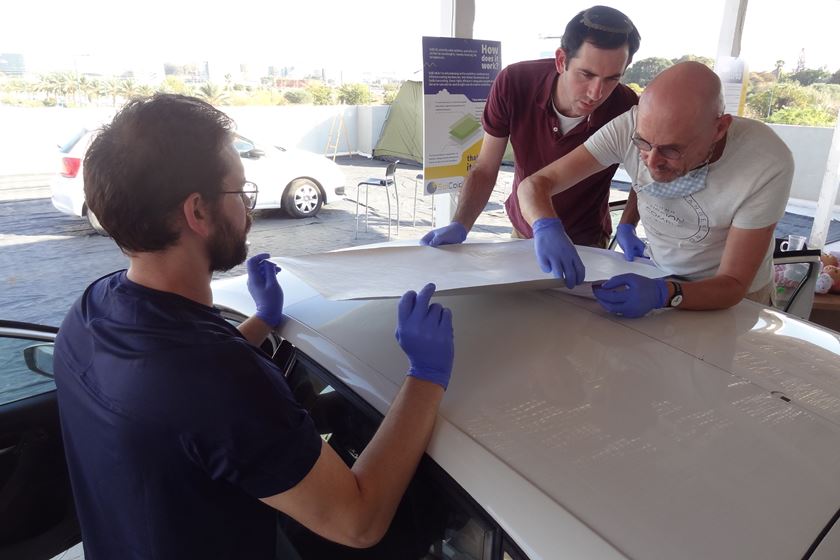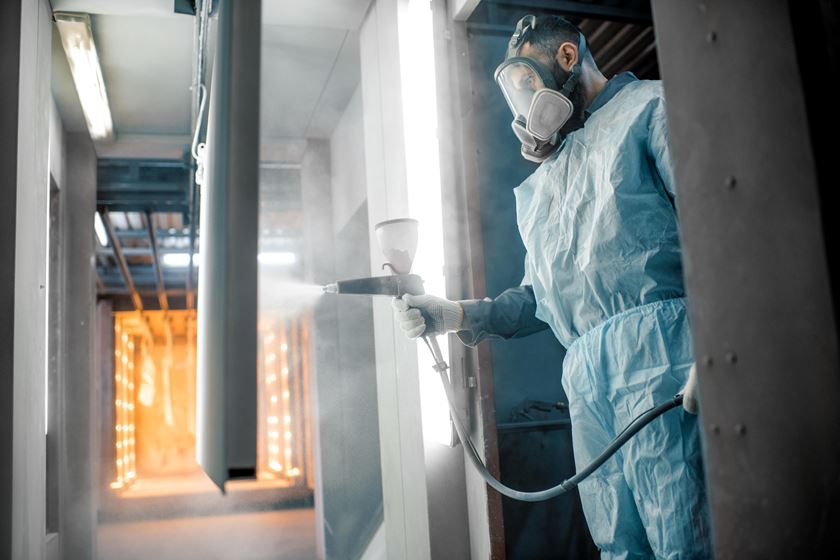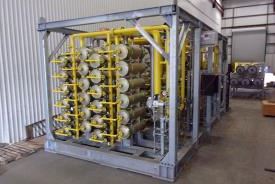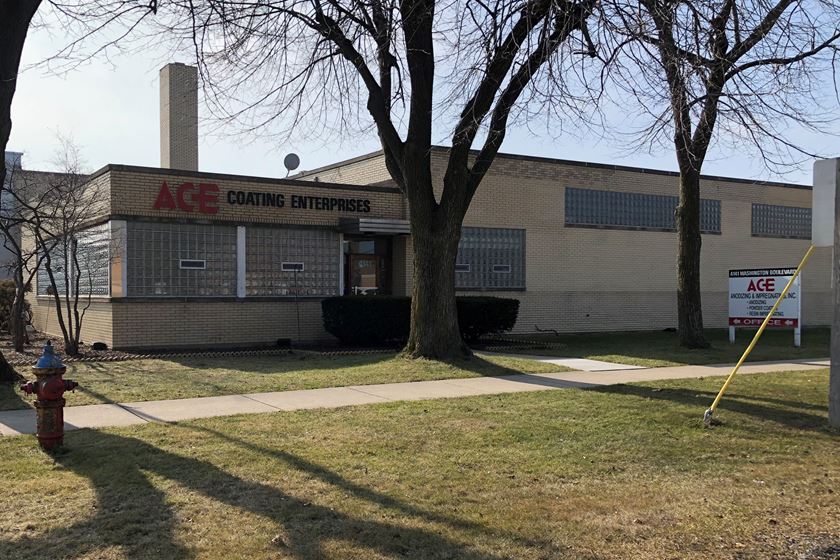Investors Turn Eye to Aerospace
Investment groups are buying finishing shops that they feel will provide the best return on their money.
#aerospace
The phones are ringing off the hook at many metal finishing shops across North America, and it isn’t just someone wanting a quote on aluminum anodizing.
Investment groups and equity firms are scouring the U.S. and Canada to buy finishing shops that they feel will provide the best return on their money of any manufacturing sector around.
Featured Content
“I get sometimes three to five calls a day,” says Cy Gipoor, owner of Morrell Aerospace, a metal finishing operation in Los Angeles. “Same thing every time; they want to know if I am ready to sell.”
It’s a ritual repeated all over, and it won’t probably stop any time soon as metal finishing remains attractive as an investment opportunity, especially when the acquisition is combined with another metal processing operation to maximum capacity and services.
“Metal finishing has become one of the fastest growing segments in the mergers and acquisition area,” says Ryan Murphy, vice president of Salem Partners, a Los Angeles-based firm specializing in helping business owners get the most for their companies when it comes time to sell or take on a partner.
Lucrative Finishing Market
For one, it puts an investor into the aerospace and defense industry, a lucrative market that has seen significant growth due to increasing production rates of commercial aircraft. Additionally, shops in non-aerospace industry segments—including automotive or agriculture—have seen increased customer demand as the general economy slowly improves.
Situated in Los Angeles with additional offices in San Francisco and Austin, Salem Partners—and especially Murphy and Trevor Bohn, a managing director—has been very active in the mergers and acquisitions of finishing shops over the past four years.
Though Salem has several different industry verticals, Murphy and Bohn focus on the aerospace and defense industry, which encompasses a broad range of businesses. So the duo began looking at sub-sectors to see what areas they could find a niche, and that’s where they came to meet the metal processing industry, and specifically its finishing sector.
“We quickly saw that it was ripe for mergers and acquisitions,” Murphy says. “Valuations have increased dramatically over the past five years, and in some cases are now nearly twice what they were a few years ago.”
The biggest driver of increased valuations and M&A activity was what Murphy calls the “macro forces” in the aerospace industry, one that has seen the sector grow exponentially with new orders for planes and parts.
“Metal processing has been a big sub-sector that has been overlooked by a lot of investors,” he says. “A lot of the metal machining industry saw consolidation in the mid-2000s all the way through to today, but the metal processing industry was a little bit forgotten.”
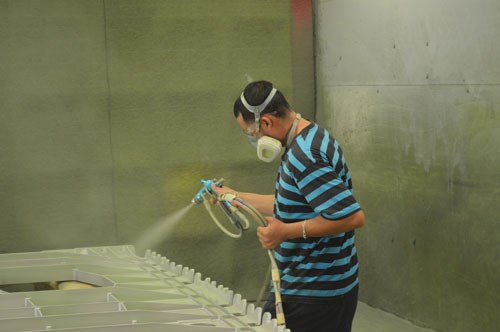
Coast Plating in California focuses on the aerospace industry, offering non-destructive testing, cleaning, anodizing, chemical conversion and paint coatings.
Finishing Critical to Supply Chain
Both Murphy and Bohn view the metal finishing industry as an underappreciated part of the manufacturing supply chain, due to the substantial barriers to entry created by the regulatory environment as well as the difficulty or gaining and maintaining the customer approvals and accreditations.
The first metal processing deal completed by Murphy and Bohn was the acquisition by Precision Castparts Corp. of Tulsa-based Southwest United Industries from its management team and Oklahoma-based private equity firm, Argonaut.
Southwest United was founded in 1953 as Southwest Metal Finishing Co., and is a huge player in providing metal finishing services, in addition to aviation component repair and overhaul. It offers a range of finishing services such as thermal spray, chrome plating and anodizing.
In the 1980s, Southwest United became involved with NASA and the Shuttle program, and in the 1990s the company worked with Boeing and Lufthansa to develop, test and put into service an ingenious chrome plating replacement technology using the HVOF thermal spray process. In 1999, it purchased Plasma Coating Corp. of Gardena, California, to give its West Coast customers the thermal spray services.
Along the way, Southwest United opened plants in Concord and Brampton in Ontario, Canada, and in Querétaro, Mexico, in a joint venture with Galnik, SA de CV that made them one of the few Nadcap accredited aerospace metal finishing operations in Central Mexico.
Salem Partners was hired by Southwest United’s management team and Argonaut to advise them on the sale process. Murphy says this acquisition was the first of many deals driven by the desire of Tier II machine-shops to vertically integrate with metal processing. Traditionally customers of metal processing businesses, larger machine shops are now considering vertical integration to ensure on-time delivery, and more importantly, capacity as the industry continues to grow.
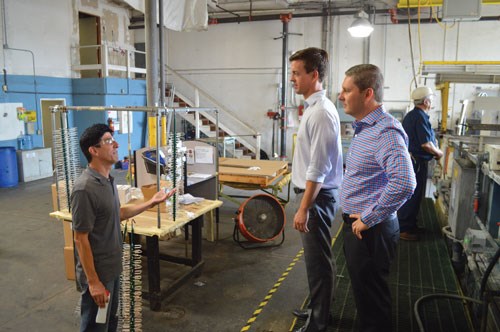
Shop manager, Billy Barba, left, speaks with Trevor Bohn and Ryan Murphy with Salem Partners, a Los Angeles-based firm that helps finishing shop owners get the most for their companies.
Finding the Right Buyer
PCC’s aggressive, M&A-led build-out of its Aerostructure division has single-handedly increased valuations for the Tier II and III of the A&D supply-chain. A diversified manufacturer of complex metal components and products, PCC serves the aerospace, power and general industrial markets with complex structural castings, airfoil castings, forged components, aerostructures and critical fasteners.
Southwest United agreed to be purchased by PCC, which added a growing segment of metal finishing and processing services to complement its already growing aerostructure capabilities.
“That deal really kicked off a big round of consolidation and investor interest,” Murphy says. “It really had a domino effect on other deals in the metal processing industry.”
Indeed it did. In fact, according to the Defense and Aerospace Competitive Intelligence Service—the industry’s top M&A service—there was $33.9 billion in aerospace and defense transaction volume in 2014, up 65 percent over 2009.
“It has become a situation where people are looking at the metal processing industry and saying ‘These businesses have a ton of great attributes,’” Murphy says. “The sector is mission critical to the supply chain, there are huge barriers to entry because of the needed approvals, and from a financial perspective, they cash-flow very well.”
Big Growth in M&A
As strategic buyer interest in the space increased, the financial sponsor or private equity community also began to aggressively pursue acquisitions in metal processing.
The first group to aggressively look to consolidate the space was a Dallas-based investment group, Trive Capital, which is focused on making control investments in companies based in the U.S. and Canada. It was one of the first equity groups to recognize the potential of the metal processing industry.
Salem Partners facilitated Trive’s first investment in the space when Murphy and Bohn represented Southern California-based Coast Plating, which began in 1965 in Gardena, and focused on the aerospace industry, offering non-destructive testing, cleaning, anodizing, chemical conversion and paint coatings.
Shortly thereafter, Salem Partners was representing Wichita-based Chrome Plus, as the owner, Jorge Della Costa, considered his liquidity alternatives. Chrome Plus started in 1991 in Wichita, and also services the aerospace industry. It is Nadcap certified for plating, grinding, chemical processing, heat treating, NDT, and surface enhancement. The idea of combining Coast Plating and Chrome Plus made strategic sense for Trive, and they formed Valence Surface Technologies.
Tracey Glende, Tim Mickael and Jorge Della Costa from Coast and Chrome Plus led the Valence executive team, which initially had four locations
“Both companies have built exceptional reputations for superior quality, turn times and customer service within their specific markets,” says David Stinnett, managing director at Trive. “We share management’s vision for creating a value-add surface technology partner to support the aerospace industry’s record backlog, and will look to invest additional capital to expand capacity, service offerings and geographic footprint.”
On the Market
But Trive didn’t stop there. It acquired three plating shops in 2014, bringing the total to seven across the U.S.: Pride Plating in Oklahoma, Dynamic Paint Solutions in Georgia and Coastline Metal Finishing in California. In 2012, Valence also acquired CSL Plating in Santa Clara, California.
Today, Valence is one of the largest independent metal finishing companies serving the aerospace and defense industry and is poised to continue its growth. Salem Partners has developed an unmatched track record in the metal processing space and continues to be very active in advising owners on liquidity events.
For Murphy and Bohn, there was a learning curve to get to know the business operations of the metal processing industry, but their mergers and acquisitions experience was already extensive, and they adapted quickly. They joined Salem Partners in 2009 to establish an aerospace and defense investment banking practice and the team and its experience has grown exponentially since then. Their group today includes several dedicated junior staffers, and they expect 2015 to be their busiest year yet.
“The metal finishing industry is very unique,” Murphy says. “You have to really understand the processes they are doing, what kind of anodizing they are doing, what type of approvals do they have from Boeing, Lockheed or Sikorsky. You have to know their tank sizes, and just how unique they are to the industry they serve.”
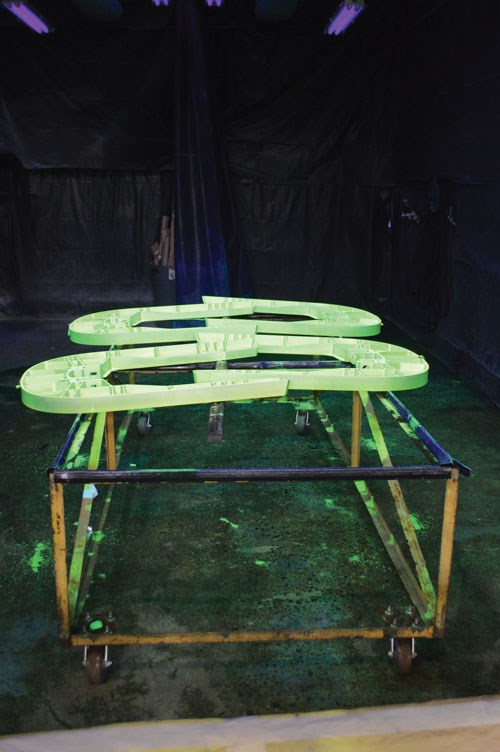
Finding Good Buyers
When Salem Partners signs-up a new client, there is a period of analysis that the firm does to better understand the unique attributes that could make the business more valuable. For example, are there any unique approvals, does the company offer complementary services (such as shot peen or heat treat), are there strong masking capabilities?
But Murphy says the key to Salem’s success is knowing who might be good buyers for the shops, then forming a relationship with those investment groups. It is something Murphy and Bohn have mastered effectively; they knew the Trive team very well, as well as the management team of Precision Cast Parts. Those relationships went far when they sat down and presented hard numbers on the transactions.
More importantly, Murphy and Bohn got to know the “subset” of investors who also chased these transactions and came in second in the bidding. They kept those groups’ telephone numbers on speed dial.
“These past few years we have come to know a large group of private equity groups and strategic buyers interested in acquiring metal processing businesses, but they just haven’t been able to get a deal yet,” Murphy says. “Understanding the rationale of the most logical buyers helps us to tailor our client’s story. We can effectively communicate, and that is key to making a deal happen at the highest possible price.”
In the last few years—and especially since the Trive and PCC acquisitions have taken place—more plating shop owners are getting fairly regular calls from people inquiring whether they would be interested in selling their finishing companies. Many of these interested buyers look to negotiate directly with the owner to limit the number of competitive buyers and acquire the company at a lower valuation.
When Salem Partners is contacted by a metal finishing or processing shop asking for help in closing a deal—or selling off all or a share of their company—Murphy and Bohn tailor their approach and the process to achieve the client’s objectives.
“What we do is leverage that interest to either close the transaction to the party that has expressed an interest at the highest price, or we expand the circle of potential buyers to make sure there is a competitive dynamic,” Murphy says.
The reality is that many of the deals that Salem Partners is asked to help with begin when the owner of a metal finishing shop has received inbound interest from a prospective buyer. But when Murphy and Bohn get involved, they begin a process of making sure the sale is competitive, that there is a maximization of the selling price, and to make sure there is a limitation of the seller’s environmental liability post-close.
“That’s really the value-added service we provide,” Murphy says.
For more information on Salem Partners, email Ryan Murphy at rmurphy@salempartners.com, or Trevor Bohn at tbohn@salempartners.com.
Originally published in the December 2015 issue.
RELATED CONTENT
-
Zinc Electroplating
Choosing the best process for your operation.
-
An Overview of Electroless Nickel Plating
By definition, electroless plating is metal deposition by a controlled chemical reaction.
-
Masking for Surface Finishing
Masking is employed in most any metal finishing operation where only a specifically defined area of the surface of a part must be exposed to a process. Conversely, masking may be employed on a surface where treatment is either not required or must be avoided. This article covers the many aspects of masking for metal finishing, including applications, methods and the various types of masking employed.














